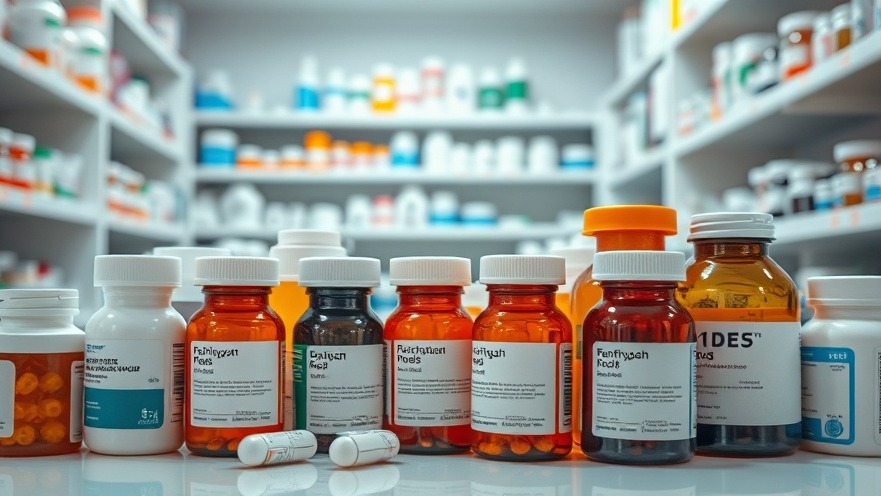
The Potential Impact of Tariffs on Prescription Drug Prices
The landscape of prescription drug pricing in the United States may be set for significant changes should proposed tariffs on imported medications be enacted. According to experts at the Johns Hopkins Bloomberg School of Public Health, the introduction of these tariffs could lead to increased costs for consumers and a worrying trend in healthcare access.
The Shift in Pharmaceutical Manufacturing
Historically, many drug manufacturers shifted their production facilities overseas not just to exploit cheaper labor but to take advantage of favorable tax environments in high-income countries. This strategy has resulted in the U.S. sourcing a considerable portion of its pharmaceuticals from locations such as Switzerland, Ireland, and Germany. Over the past decade, the value of drug imports has more than doubled, indicating a deepening dependence on foreign production.
Who Will Bear the Burden of Tariffs?
With tariffs being a potential reality, it is essential to consider who will ultimately bear these costs. The historical trend shows that higher costs often trickle down to patients. As stated by Dr. Mariana Socal from Johns Hopkins, nearly one in four Americans have reported they could not afford the drugs they need, leading to critical health situations that could escalate if tariffs come into play. This situation paints a dire picture of increased financial strain for patients, which can have significant clinical implications.
Understanding Generics and Their Role
Generic medications, which are vital in managing chronic conditions and pain, may also be affected by tariff strategies. Since generic drugs are often a more affordable alternative, any price increase due to tariffs on branded drugs could push more patients toward generics, thus exacerbating shortages or affordability challenges across the board. A rise in generic usage, however, is not a panacea and creates its own complexities in supply and demand.
The Future of Drug Pricing and Patient Access
As we move forward, the intersection of drug pricing policy and international trade will be essential. Should tariffs be formally implemented, we can expect a ripple effect in the healthcare sector that may not only drive up prices but also affect medication availability for patients who already face affordability issues. Regulatory discussions will need to account for the potential consequences tariffs could impose not only on the economics of medicine but on public health outcomes as well.
What Can Concierge Practices Do?
As a concierge medical practice owner, it's crucial to stay informed about these developments. Tariffs may force patients to reconsider their options regarding medication management and affordability. Understanding these dynamics can help practices adjust their strategies and prepare for shifts in patient needs. Moreover, practices may want to explore pharmacoeconomic management to mitigate the effects of these price increases on their operations and patient care.
Moving Forward with Vigilance
In this rapidly evolving landscape, staying proactive is key. Understanding the implications of tariffs and drug pricing policies will not only benefit your practice’s bottom line but also enhance the care you provide to your patients facing rising healthcare costs. Ensuring that you remain a trusted resource for your patients during these challenging times will help solidify your position as a leading concierge practice.
 Add Row
Add Row  Add
Add 




Write A Comment